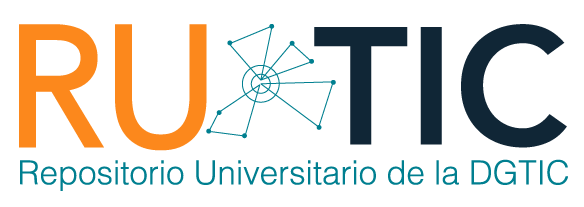| dc.contributor.editor | ERNESTO PRIANI SAISO | |
| dc.coverage.spatial | MX | |
| dc.date.accessioned | 2018-06-28T04:44:38Z | |
| dc.date.available | 2018-06-28T04:44:38Z | |
| dc.date.issued | 2008-03-10 | |
| dc.identifier.uri | https://ru.tic.unam.mx/handle/123456789/1357 | |
| dc.description | Tema del mes | |
| dc.description.abstract | Los Andes venezolanos constituye un sistema geográfico complejo donde sus componentes físico-naturales y antrópicos intervienen a diferentes escalas espaciales y temporales en la dinámica de las cuencas. El objetivo es comprender la organización de la cuenca del Río Venegara, discernir su realidad socio–económico, con énfasis en el rol y en las relaciones de género, como en la disponibilidad de los recursos del ambiente, de identificar las limitantes y las potencialidades intrínsecas del territorio y ubicar las áreas con mejor aptitud para un determinado uso de la tierra, el cual este en armonía con el ambiente y sostenible a través del tiempo. Para alcanzar el objetivo propuesto se integra elementos tanto de la Evaluación de Tierras de la FAO como lo señalado en el Reglamento Parcial del Decreto con Fuerza de Ley de Tierras y Desarrollo Agrario para la Determinación de la Vocación de Uso de la Tierra Rural y en el Desarrollo Rural Sostenible. La evaluación de tierras permite detectar que la pendiente, la estructura del suelo y la pedregosidad son las limitaciones que están presentes en la cuenca del río Venegara para la implementación de la Agricultura Mejorada de cultivos anuales y semipermanentes, la Horticultura Moderna y la Ganadería orientada a la producción de leche. Además se observa que existe una significativa relación entre la aptitud para los tipos agrícolas propuestos y el uso actual de la tierra en el valle aluvio-coluvial | es_MX |
| dc.description.abstract | The Venezuelan Andes constitute a complex geographical system where their physical-natural and anthropic components take part on different spatial and temporary scales in the dynamics of the river basins. The objective is to understand the organization of the river basin of the Venegara River, to discern its socioeconomic reality, with emphasis in the role and the relations of genre, like in the availability of the resources of the environment, to identify the constraints and the intrinsic potentialities of the territory and to locate the areas with better aptitude for a determined Land use, which this in harmony with the environment and sustainable through the time. Ito reach the objective proposed is integrated elements of the Land Evaluation of the FAO as indicated in the Partial Regulation of the Decree with Force of Law of Land and the Agrarian Development for the Determination of the Vocation of Use of the Rural Land and in the Sustainable Rural Development. The Land evaluation allows detecting that the slope, the structure of the soil and the stony are the limitations that are present in the river basin of the Venegara river for the implementation of the Improved Agriculture of annual and semi-permanent cultures, the Modern Horticulture and the Cattle ranch oriented to the milk production. In addition it is observed that a significant relation between the aptitudes for the agricultural proposed types exists and the present land use in the aluvio-coluvial valley | en |
| dc.format | html | |
| dc.format | application/pdf | |
| dc.format.extent | 15.98 KB | |
| dc.format.extent | 1.422,5 KB | |
| dc.language | spa | |
| dc.publisher | Universidad Nacional Autónoma de México. Dirección General de Cómputo y de Tecnologías de Información y Comunicación. Revista Digital Universitaria | |
| dc.relation.isformatof | http://www.revista.unam.mx/vol.9/num3/art15/art15.pdf | |
| dc.relation.ispartof | http://www.revista.unam.mx/index_mar08.htm | |
| dc.rights | openAccess | |
| dc.source | Revista Digital Universitaria (1607 - 6079). Vol.9, No.3 (2008) | |
| dc.subject | Desarrollo sustentable | |
| dc.subject | Recursos naturales | |
| dc.title | Hacia la sostenibilidad de las tierras en la cuenca del río Venegara en Venezuela | es_MX |
| dc.title.alternative | Towards the Sustainability of Land in the River basin of the River Venegara Municipio Jáuregui Táchira - Venezuela | en |
| dc.type | article | en |
| dc.contributor.director | Alejandro Pisanty | |
| dc.subject.keywords | Río Venegara en Venezuela, Agricultura orgánica, Sustainable Development, Natural Resources, Venegas River in Venezuela, Organic Farming | |
| dc.identifier.url | http://www.revista.unam.mx/vol.9/num3/art15/int15.htm | |
| dc.creator | Lucia Wilmajay Martínez Quintero | |
| dc.rights.url | http://creativecommons.org/licenses/by-nc-sa/4.0 |
Files in this item
This item appears in the following Collection(s)
COMPARTE
BÚSQUEDA
Escriba el texto a buscar en DSpace
CONTACTO
El Repositorio Universitario de la DGTIC se edita en la Dirección General de Cómputo y
de Tecnologías de Información y Comunicación (DGTIC), de la Universidad Nacional Autónoma de México (UNAM)
Circuito Exterior s/n, Ciudad Universitaria, Coyoacán, C.P. 04510, México, D.F
Tel: +(52) (55) 56228166 Email: rutic@unam.mx









 ¿Qué es un repositorio...?
¿Qué es un repositorio...? ¿Qué beneficios obtengo...?
¿Qué beneficios obtengo...? ¿Qué tipo de recursos...?
¿Qué tipo de recursos...? Preguntas frecuentes
Preguntas frecuentes